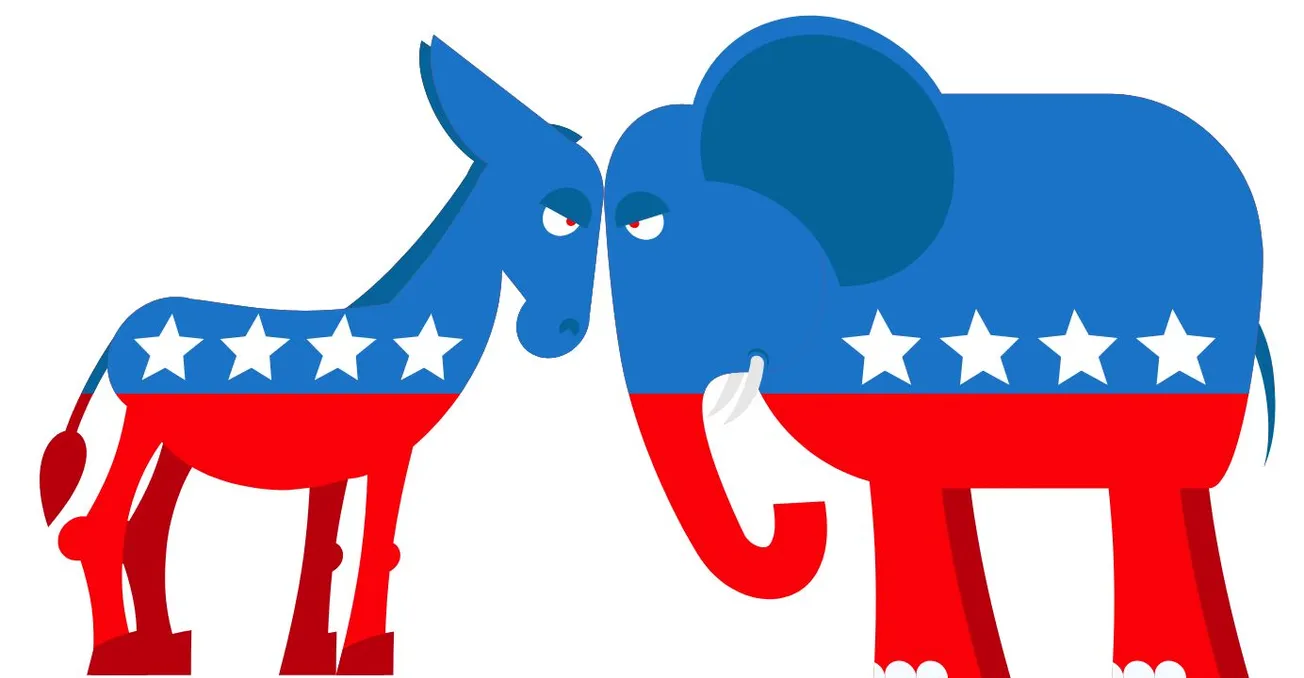New polling continues to show that the 2022 midterm election outcome will be a close one, as both Democratic and Republican parties appear to be in a statistical tie on who voters prefer to run Congress next term.
The Supreme Court’s decision to end abortion rights protections appears to be helping Democrats’ numbers.
In an Emerson College poll published on Friday, respondents were asked who they would vote for today, if the midterms were happening right now. Voters were split nearly evenly on the question, with 43.7 percent saying they’d back the Democratic candidate in their House race versus 44.7 percent saying they’d prefer the Republican candidate to win.
The 1 point difference is within the survey’s 2.9 point margin of error, which means the two parties are essentially tied, according to the poll.
Both parties’ voters appear equally motivated to vote, with 93.4 percent of Democratic-leaning voters saying they are very or somewhat motivated, and 93.2 percent of Republican-leaning voters saying the same.
Although showcasing a statistical tie between the two major parties, the news is probably more welcomed by Democrats, as Emerson College polls throughout the year have suggested Republicans were likely to lead in the midterms. In February, Republicans led Democrats by 9 points, but that lead has gradually shrunk over the intervening months.
Those supporting Democrats appear to be motivated in large part by the Supreme Court’s upending of abortion rights recognitions in a decision issued last month. According to Spencer Kimball, executive director of Emerson College Polling, “those who say abortion is the top issue facing the nation are more motivated to vote this November than any other issue group.”
“Among the nearly 1 in 10 voters for whom abortion is the top issue, 89% are very motivated to vote this November; comparatively, 76% of voters who say the economy is the top issue are very motivated to vote,” Kimball said, adding that “voters who say abortion is the most important issue break for the Democratic congressional candidate over Republicans 80% to 8%.”
The new polling numbers suggest it will be a tight race, though prognosticators continue to say that the midterms are the GOP’s to lose. Typically, the party of an incumbent president tends to lose seats in the first midterm of their tenure — but this year appears to be an atypical one, as this and other polls have shown.
According to an average of polling data from Real Clear Politics (RCP), most polls show Republicans with a slim lead of 44.3 percent over Democrats, who on average poll at 42.7 percent in various surveys. That 1.6 point difference is within the margin of error for most polls conducted, which again means that the RCP numbers indicate the race is tied at this point.
Compare those numbers with RCP’s average of polls at this point in the 2018 midterms. On July 22 of that year, Democrats, who were seeking to win Congress after Trump won the White House two years prior, were ahead of Republicans by about 7.4 points in the polls, on average. The party went on to win in the midterms by 8.4 points, nationally.
Common bellwethers — including President Joe Biden’s dismal polling numbers — still suggest that Democrats face an uphill battle in retaining one or both houses of Congress this year. But in addition to important issues like abortion, other issues could also interrupt Republicans’ chances of winning, including if former President Donald Trump decides to announce a run for president in 2024 before the midterm election in November.
--30--
Written by Chris Walker of Truthout. Cross-posted from Truthout.







